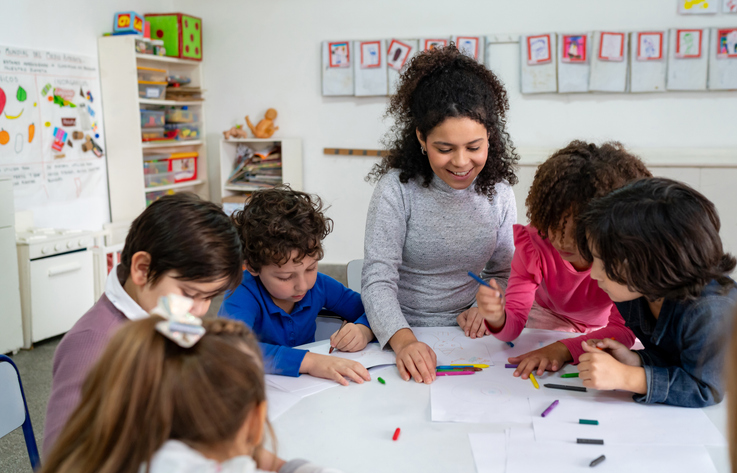
What do you learn in a bachelor’s in elementary education program?
You can give children a strong foundation for a lifelong love of learning. Start your career as an elementary school teacher with bachelor’s degree programs in elementary education on edX.
Written by: Nigel Evans, Edited by: Vanessa Wolf
Last updated: July 23, 2025
If you want to shape some young minds and help them build a foundation for lifelong learning, a bachelor's in elementary education program can be a good place to start.
Learn about the core philosophies, curriculum, and specializations within a bachelor's in elementary education program to see if it may be a great fit for you.

What to expect from a bachelor's in elementary education program
In a bachelor's in elementary education program, you'll develop the skills and knowledge to teach grades kindergarten through six. The program focuses on teaching methods, classroom management, and child development in several areas.
As part of the program's core philosophy, you'll focus on designing engaging and inclusive learning environments. Additionally, you'll meet state licensure requirements and gain the skills needed to foster both the academic and social growth of your students.
Typically, a bachelor's degree in elementary education can be completed within four years, requiring around 133 credit hours. Tuition costs will vary based on your state of residency and the institution you choose.
Select from a variety of course subjects like child psychology, pedagogy, and curriculum development. You may also be able to complete a teaching practicum or an internship, which gives you real-world experience.
Bachelor's in elementary education core curriculum
This curriculum helps you develop an understanding of teaching strategies, subject-specific instructions, and child development. The program helps prepare you for real-world teaching and balances practical applications with theoretical learning.
- Foundations of education: This course covers the history, philosophy, and sociology of education, as well as the evolution of teaching strategies, and the impact that education policies may make on the classroom today. It helps you understand the role of education in the broader society.
- Development and learning: In this course, you'll explore the social, cognitive, and emotional development of a child from early days through adolescence. It can help prepare you to identify the development cycle, so you can adapt your instructions to meet the needs of various students. You'll also learn about strategies to help foster an inclusive and positive classroom environment.
- Classroom management: This course covers the development of effective teaching methods, like differentiated instruction or active learning. It also teaches techniques to manage classroom behavior, so you can set expectations and create a supportive learning environment.
Elementary education specializations and concentrations
Some programs offer specializations so you can tailor your education to a specific career interest. These could include science, technology, engineering, and math (STEM) to help prepare students for the technologies of today.
Alternatively, you could choose English as a second language (ESL) to help you support non-native English speakers.
If you concentrate on special education, you'll have the tools to work with students with disabilities, to emphasize inclusive practices and individualized instruction.
Graduation requirements for a bachelor's in elementary education
To graduate with a bachelor's in elementary education, you typically need a full semester of first-hand teaching experience in a local school, working with a mentor teacher.
Some programs may also call for a capstone project or portfolio, focusing on lesson plans, assessments, or classroom management strategies.
You may need to complete a set number of credit hours, including core education classes, general education courses, and electives.
Explore courses and programs in education
No results.